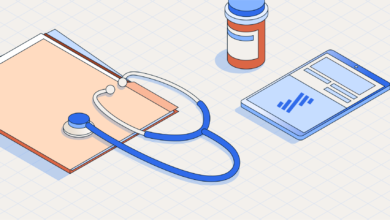
7 Ways in Which Drug Abuse Affects Your Physical Health
Drug abuse is a pressing global issue and has been getting worse daily. The problem is that several users do not acknowledge how such substances destroy their bodies or do not know about it. Studies prove that drug abuse is linked to mental and physical health deterioration and can increase the risk of diseases like cancer.
Increasing awareness can help reduce drug abuse cases, allowing people to lead more fulfilling lives. Hence, this blog will address seven ways how drug abuse affects physical health and explore the impact on people.
Table of Contents
7 Ways in Which Drug Abuse Affects Your Physical Health
You must first remember that each drug causes different neurological reactions and has unique physical effects. Hence, your problems will depend on the medication you’re addicted to. The following are common physical health issues people with drug abuse disorder experience.
1. Weakens the Immune System
Our immune system is our primary line of defense against minor and major illnesses like colds, flu, and cancer. Unfortunately, consistent drug abuse and resulting lifestyle choices take a toll on it and weaken it immensely.
The result is that addicts end up with weak resistance against common pathogens and succumb to seasonal infections easily. Additionally, our immune system is responsible for fighting against cancer cells and cannot perform its role effectively when subdued. Hence, addicts are at higher risk of developing cancer.
2. Leads to Nausea and Abdominal Pain
Heroin and other opioids are famous for causing nausea and vomiting in addicts, but they aren’t the only ones. Several addicts reportedly feel chronic nausea and abdominal pain due to drug use, and this problem takes years to improve.
Unfortunately, medications have limited effectiveness in such cases, and the best solution is recovery. It takes time for such issues to go away after you stop taking the drug; however, the symptoms will become less severe with time and eventually disappear.
3. Increases Risk of Cardiovascular Diseases
Several drugs shrink blood vessels, leading to cardiovascular issues like hypertension, heart rate increases, etc. the problem with cardiovascular problems is that they don’t become evident until things become too severe to reverse and can lead to permanent damage.
It is better to avoid taking drugs altogether instead of risking such body deterioration. Additionally, remember that most people develop cardiovascular problems in their old age. However, if you already have a weakened system in youth, matters will get worse when you get older.
4. Loss of Appetite and Weight Loss
Stimulants like cocaine, methamphetamine, etc., are known to restrict appetite and often cause excessive weight loss in addicts. The problem is that such weight loss is excessively unhealthy and leads addicts to become nutritionally deficient, causing other health concerns.
This problem is also common for prescription drugs like Ritalin and Adderall. Both are helpful when taken in a controlled quantity, but people tend to abuse their use, leading to health issues.
5. Causes Respiratory Issues
Cocaine, heroin, Ketamine, and similar drugs negatively impact your respiratory system. Opioids are especially popular for causing or worsening conditions like bronchitis and asthma, while others can lead to pulmonary edema and pneumonia.
The result is that addicts become easily breathless and cannot participate in endurance activities. Their organs also suffer from inadequate oxygen supply, becoming weak.
Unfortunately, some of the damage to your lung during addiction can become permanent and won’t heal completely even after recovery. However, recovery can help you avoid worsening these conditions, leading to a relatively better lifestyle.
6. Neurological Concerns
Seizures are a common concern for people with stimulant drug addiction, but they aren’t the only neurological concern. Some drug addictions cause cognitive impairment, insomnia, neuroleptic malignant syndrome, etc.
They essentially affect the brain stem, limbic system, or cerebral cortex, disrupting their routine functioning. Hence, you are at risk of severe neurological damage due to addiction.
7. Potential Liver Failure
Alcohol abuse is responsible for many liver-related diseases, and drugs aren’t far behind. Both substances damage this body part significantly and can also harm your kidneys. Livers are essential for routine functioning, and any damage can be dangerous.
Wrapping Up
I hope you found this blog informative, and the knowledge will help you make the correct choice for your well-being. You can seek help from rehab facilities near you if you struggle to overcome addiction and require professional assistance.








